Please find the preliminary list of keynote speakers here in alphabetical order.
Pär Arumskog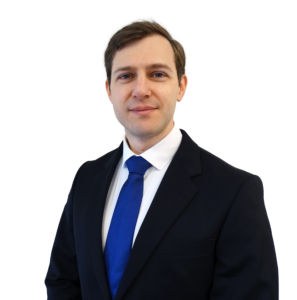
VBN Components AB
Uppsala, Sweden
Carbide size control using EBM process parameters and extreme layer thickness variations in high-speed steels and cemented carbide
Pär Arumskog earned his Master of Science in Engineering in Applied Physics from Linköping University, Sweden, before moving to Japan to do industrial research into hard coatings for cutting tools, in particular working on ceramic Physical Vapor Deposition coatings. Moving from coatings into Additive Manufacturing, he has been working with Electron Beam Melting (EBM) since 2017 when he joined Arcam AB, now Collibirum Additive, as an Application Engineer. At GE Additive, he gained extensive knowledge of EBM, in particular working on customer-focused process development for new alloys and supporting medical device manufacturers with Equipment Qualification and Process Validation topics. He is qualified to teach material development with EBM and has experience of EBM connected to a wide range of materials, such as Ti alloys, pure Cu, Ni alloys, stainless steel, and refractory metals. At VBN Components since 2022, currently with the title Senior AM Development Engineer, he now works with EBM of high-speed steels and hybrid cemented carbides. Since 2024, he devotes the majority of his time to qualifying large-scale L-PBF for aerospace applications at GKN Aerospace Sweden. Pär speaks fluent Swedish, English and Japanese. He currently holds six patents with several additional applications pending.
Dr. Agustin Diaz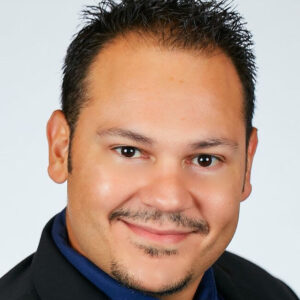
Advanced Manufacturing and Innovation Manager
REM Surface Engineering
2107 Longwood Drive
Brenham, TX 77833 US
Post-processing of metal additive manufactured components: powder removal and surface finishing of internal channels and external surfaces through chemically-assisted technologies
Dr. Agustin Diaz is the Advanced Manufacturing and Innovation Manager at REM Surface Engineering, where he leads cutting-edge research and development efforts to optimize the surface properties of additive manufacturing (AM) components. He has pioneered several innovative processes that enhance the mechanical performance and corrosion resistance of AM surfaces, earning him widespread recognition in the field. Dr. Diaz is at the forefront of developing novel technologies that address the challenges of surface finishing in AM, significantly advancing the capabilities and applications of AM materials. Dr. Diaz actively contributes to advancing industry standards and best practices through his involvement in numerous technical committees and professional organizations. He has authored numerous peer-reviewed papers, holds several patents, and contributed to multiple book chapters on the surface optimization of AM components. He is also a highly regarded principal investigator, having led various high-profile research projects, including multiple NASA and US Air Force Small Business Innovation Research (SBIR) awards.
Dr. Michael Kirka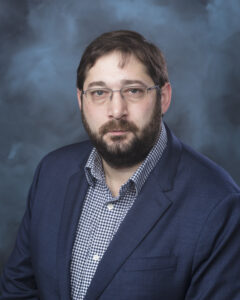
Manufacturing Demonstration Facility
Deposition Science and Technology Group
Materials Science and Technology Division
Oak Ridge National Laboratory, US
Processing of Refractory Metals Through Electron Beam Melting
Dr. Michael Kirka is a Senior Research Staff and the Group Leader of the Deposition Science and Technology Group at Oak Ridge National Laboratory, where his research interests are on evaluating the suitability and limitations of high temperature materials for use in extreme environments for processing via additive manufacturing routes. Combining interdisciplinary disciplines encompassing metallurgy, data science, computational materials modeling, and process simulation, the necessary processing science to overcome many non-weldability challenges of nickel-base superalloys and refractories to enable materials of ever-increasing operational capabilities has been achieved. These advancements have allowed the team to demonstrate the suitability of additively manufactured materials in some of the harshest environments including hot section rotating components of turbine engines and fusion plasma environments.
In 2020 Michael was the recipient of the TMS Young Innovator Award in Additive Manufacturing. Michael received his B.S. in Materials Science from The University of Michigan in 2007 and M.S. and Ph.D. degrees from the Georgia Institute of Technology in Mechanical Engineering in 2010 and 2014 respectively.
Prof. Feng Lin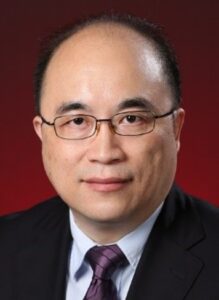
Department of Mechanical Engineering (DME), Tsinghua University, China
Council Member of Chinese Mechanical Engineering Society (CMES)
Vice Chairman of Additive Manufacturing and 3D Printing Institute of CMES
Efforts to reduce thermal stress, surface roughness, and powder consumption in powder bed melting additive manufacturing technology
Prof. Lin started his research on Rapid Prototyping technique in early 1990, when he was a graduate student in the Department of Mechanical Engineering at Tsinghua University and developed the first laminated object manufacturing (LOM) system in China. From 1998 to 2002, he became a post-doctoral fellow and research assistant professor at Drexel University, and began research on computer aided tissue engineering. Since 2002, Prof. Lin joined the department of Mechanical Engineering of Tsinghua University and initiated the research and development of electron beam selective melting (EBSM) in China, which possessed active precise powder supply system and the capacity of dual metal gradient structure manufacturing. Recently, he is devoted to improving the function and performance of EBSM process through introducing the multi-scale computational simulation technique into EBSM process and inventing the EB-laser hybrid selective melting processes with an integrated laser in EBSM. He invented the floated powder bed technique and is dedicated to refining and promoting this innovative technology.
He won the Program for New Century Excellent Talents by Ministry of Education in 2006, the second prize of National Science and Technology Progress Award twice in 2015 and 2002, and the Highly Commend Award for Outstanding Paper by the Literati Club of Emerald Publishing in 2001.
Prof. Greta Lindwall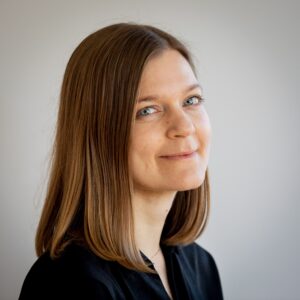
Department of Materials Science and Engineering
KTH Royal Institute of Technology, Sweden
Real-time tracking of electron beam additive manufacturing using synchrotron x-ray techniques
Greta Lindwall is an Associate Professor at the Department of Materials Science and Engineering at the KTH Royal Institute of Technology in Sweden. Her research focuses on materials design for metal additive manufacturing and combines computational approaches with advanced material characterization techniques to increase the understanding and predictability of structure evolution during additive manufacturing.
Andrea Palumbo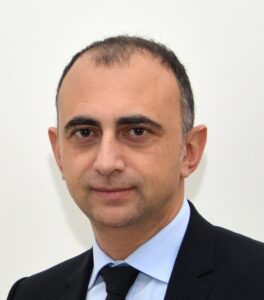
Additive Technology Life Cycle Engineering
Additive Manufacturing Principal Engineer
Avio Aero – a GE Aerospace Business
Cameri (NO), Italy
EBM TiAl Blades Production at Avio Aero – An Overview
Andrea Palumbo is currently the Principal Engineer for Additive Manufacturing at AvioAero Additive Technology Life Cycle Engineering. Based in the 9X TiAl blades Cameri shop, his role involves providing technical guidance on the development of additive parts and technologies, with a particular focus on EBM and GE9X LPT blades.
In this role, he also mentors emerging talents in AvioAero Additive Technology and contributes to the consolidation of additive technical knowledge.
Andrea holds a master’s degree in Aeronautical Engineering from the Turin Polytechnic. He began his career working as a mechanical designer and structural analyst at an engineering company. In 2002, he joined AvioAero, relocating to Turin to work in Engineering on Low Pressure Turbine component and system design. After graduating as a Six Sigma Black Belt, he spent two years working on various product and process improvement projects. In 2008, he was appointed Technical Leader for the Low Pressure Turbines of the EJ200 (Eurofighter), PW308, and for the development of the PW814-815 Exhaust Case.
In 2014, he began working on Additive Manufacturing technology, moving to the Cameri shop to oversee the development and industrialization of GE9X Electron Beam Melting LPT TiAl blades up to their certification.
Andrea enjoys skiing, hiking, photography, reading, and playing with his 11-year-old son and 5-year-old daughter.
Dr.-Ing. habil. Anja Weidner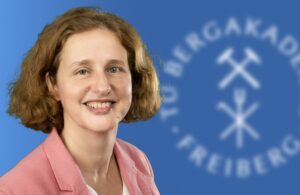
Local Deformation and Damage Group
Institute of Materials Engineering
Faculty of Materials Science and Technology
TU Bergakademie Freiberg, Germany
Ultrasonic fatigue testing of additively manufactured high temperature materials at RT and elevated temperatures
Anja Weidner has been researcher at the Institute of Materials Engineering at the University Bergakademie Freiberg, Germany, since 2009. She studied Materials Science at the University Bergakademie Freiberg where she received her doctorate in 1998 and her habilitation in 2019. She has been the leader of the group “Local deformation and damage mechanisms” since 2011. Her research includes plasticity and fatigue as well as additive manufacturing with particular focus on in situ characterization techniques and micromechanics. She was awarded the “Galileo price” in 2020 and the DGM society award “DGM Pioneer” in 2024.
Prof. Wentao Yan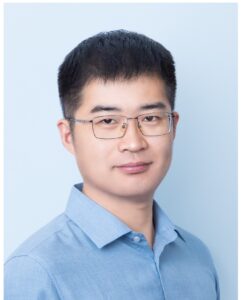
Applied Mechanics
Department of Mechanical Engineering,
National University of Singapore, Singapore
High-fidelity modeling of multi-material additive manufacturing: from particle reinforced composites to in-situ alloying
Dr. Wentao Yan has been an assistant professor in the Department of Mechanical Engineering, National University of Singapore (NUS) since 2018. Supported by multi-million grants, his research group with 20+ students focuses on multi-scale multi-physics modeling, experimental investigation and data analysis of additive manufacturing. His team was the biggest winner in the 2022 NIST AM-Bench Simulation Challenges by winning 9 awards in the total 25 tests. He has published ~ 120 papers on flagship journals, such as Nature Communications, and Acta Materialia, which have received over 5600 citations. He has delivered more than 80 invited talks at international conferences and prestigious universities. Over 20 of his former students have got faculty positions, including all the 10 former postdocs. Before joining NUS, Dr. Yan was a postdoctoral fellow at Northwestern University and also a guest researcher at the National Institute of Standards and Technology in the USA. He received his Ph.D. degree jointly at Tsinghua University, Beijing and Northwestern University, USA. He got his Bachelor degree from the Department of Mechanical Engineering, Tsinghua University, Beijing in 2012.